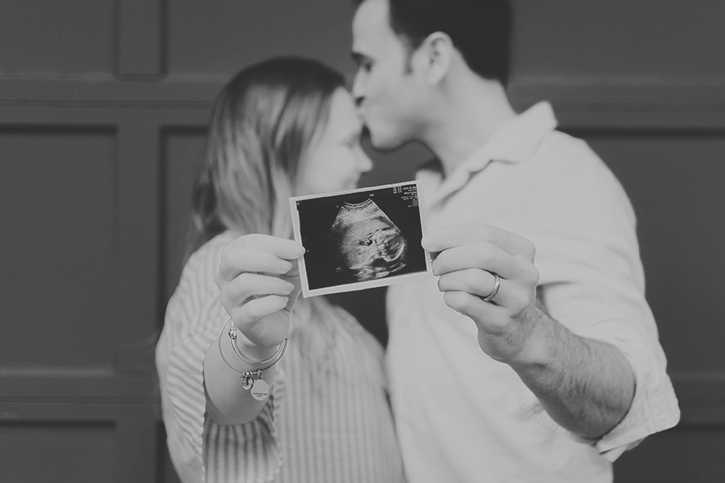There are a number of reasons you may want to take a home pregnancy test – you may be late on your period, you and your partner may have been trying to conceive and you’re eager to check to see if this month it has worked, or you may simply be experiencing symptoms of pregnancy.

No matter the reason, nearly every woman will need to take a pregnancy test at some point, so it’s good to know all you can about them.
What Is a Home Pregnancy Test – How Does It Work?
A home pregnancy test is a fast, simple, affordable way to determine whether you are pregnant. They are designed tell if your urine contains a hormone called human chorionic gonadotropin (hCG), which is produced rapidly after a fertilised egg attaches to the wall of your uterus. hCG production usually starts around six days after fertilisation.
There many different varieties of home pregnancy test, but they work around the same principle – having your urine touch a special stick designed to detect hCG. You will either need to pee into a cup or container and dip the stick in, or pee directly on the stick mid-stream. You will then need to lay the stick on a flat surface for a few minutes, then look for an indication of whether you are or are not pregnant (usually a line or symbol). It’s a very simple process and all pregnancy tests come with instructions, so be sure to read these beforehand.
Can Home Pregnancy Tests Be Wrong?
Home pregnancy tests are extremely accurate, however, all will have some margin for error (usually 1-3%). This is because fertility drugs or some other medications can contain HCG, which might affect the results. A false positive reading may also occur if you’ve had what is called a had a “biochemical pregnancy” – this is when the fertilised egg is lost soon after it attaches to the uterine wall. An ectopic pregnancy, menopause or problems with your ovaries can also affect results. However, this is very rare – home pregnancy tests are around 99% accurate.
You may also still be pregnant even if you get a negative result. This may be because you tested too soon after having sex, you didn’t take the test the right way, the test was old, your urine was too diluted because you drank too much before taking your test, or you are on certain medications. If this is the case, wait a few days and take a test if you still have not gotten your period.
When Should I Take a Home Pregnancy Test?
The best time to take a home pregnancy test is in the morning. This is when hCG levels are the highest. Of course, you can take a test whenever you want, however, it might not be as accurate.
In terms of when to take a pregnancy test after missing your period, it’s important to know that hCG won’t show up in your urine right after you fall pregnant. This usually takes between 6 and 12 days after the egg attaches to the uterine wall. You may or may not have missed your period by this point. As a rule, it’s a good idea to wait until a week after you’ve missed your period for the most accurate results.
What To Do If My Test Is Positive?
If your test is positive, it very likely that you are pregnant. Feel free to go ahead and take another test to see if it is also positive, but you should book an appointment with your doctor to confirm your pregnancy too. This may involve another urine test, a blood test, or an ultrasound. Your doctor will be able to give you advice and advise you on what to do next.
If you have any questions regarding pregnancy or would like to book an appointment, please don’t hesitate to get in touch.
Dr Bevan Brown is one of the most trusted obstetricians in Sydney and will be thrilled to give you complete and compassionate care in every way possible.